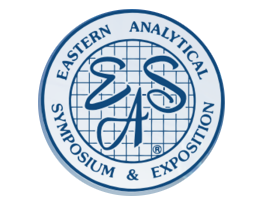Quality Control of Small Molecule Drugs and Recombinant Biologics:
Fundamentals and Best Practices
New One-Day Course E13-24, Tuesday, November 19th, 8:30am – 5:00pm
Dr. Michael W. Dong, Genentech, Small Molecule Analytical Chemistry, S. San Francisco, CA
COURSE DESCRIPTION
This introductory course provides an overview of key drug quality concepts, standards and practices for the pharmaceutical and biotechnology industries. A recent incidence of adulterated Heparin and a major recall of children’s medicines are used to demonstrate the difficult challenges of maintaining drug quality in a global supply chain.
Interactive lectures explore quality systems, control processes and regulations in clinical development and drug manufacturing. You will learn the roles of quality assurance (QA), quality control (QC), and the chemistry, manufacturing, and control (CMC) drug development process in ensuring the safety, efficacy and quality of drug products. The analytical chemistry methodologies used in quality assessment are surveyed. The course addresses Quality by Design (QbD), Critical Quality Attributes (CQA), Risk Assessment/Management, and Process Analytical Technologies (PAT) and modern regulatory trends in quality assurance. It covers industry-standard processes such as change control, SOPs, qualification/validation, release testing, specifications, certificates of analysis (COA) and deviations. Specific quality attributes of large-molecule recombinant biological products are described and contrasted with those of small molecule organic drugs.
WHO SHOULD ATTEND
This course is beneficial for scientists (particularly analytical and QC chemists) working in a range of disciplines (analytical development, QC, QA, Quality, Regulatory) across the pharmaceutical industry who want to improve their understanding of CMC, quality systems, analytical chemistry and quality control processes in the industry. This course is also useful for non-pharma scientists seeking a technical overview of the challenges and opportunities for drug development and quality management (QA, QC, regulatory, supply chain / project management) in pharma related industries (pharmaceutical, biotechnology, generics, over-the-counter and nutraceutical industries).
TOPICS
1. Introduction to Drug Quality and CMC Quality Assurance Process
* What is drug quality? Common quality issues of drug products
* Important quality attributes: Appearance, form, identity, potency, purity, chirality, uniformity, bioavailability, stability, microbial activity, sterility
* Case studies (Heparin, McNeil and Acino recalls)
* Quality issues and nuances in nutraceutical and other related industries.
* The CMC (Chemistry, Manufacturing and Control) process in new drug development
* Scientific investigation, preclinical demonstration of safety and efficacy, API process scale-up, formulation, analytical development, registration requirements (IND, NDA), manufacturing process development and validation, quality control, pre-approval inspections.
2. Regulations, Quality Standards, Systems and QbD
* GLP, GMP, GCP, ICH guidelines and other public standards
* Regulatory oversight, registrations (IND, NDA, CTA), marketing approval, audits, inspections, pharmacovigilance complaints, warning letters, consent decrees, and recalls
* Internal quality systems and processes, SOPs, equipment, facility, personnel, signatory and approval of control documents, data integrity and audit trail, materials control, manufacturing, packaging, labeling, transportation, storage and dispensing
* Setting relevant specifications, sampling, sample chain of custody, developing relevant testing methods, method validation, reference standard qualification, release testing, documentation, review and QA product release.
* Functions and responsibilities of an independent QC / QA unit
* ICH Q8, Q10, Quality by Design (QbD), Critical Quality Attributes (CQA), Design of Experiment (DOE) to explore design space, Process Analytical Technologies (PAT), at line, online or inline in process control (IPC), risk-based quality management ICH Q9
3. QC of Small Molecule Drug Substance and Product: Specifications, Release Testing, COA, Impurities and Stability
* A survey of common analytical chemistry techniques
* A case study of a small molecule drug: specifications, release testing and COA
* Anatomy of an analytical method and system suitability testing
* API: physical, appearance, solid state properties, form, chemical (id, MW, structure, purity, chiral purity, potency), moisture, heavy metals, ROI, residual solvents, solubility
* Drug products: physical, chemical, performance (dissolution), uniformity, microbial testing
* Stability indicating method, forced degradation study, impurity characterization and qualification, specifications, chiral purity, genotoxic impurities
* Stability: protocol, time points, long term and accelerated storage conditions, stability reports, and shelf life determination
4. Critical Quality Attributes for Recombinant Biological Products (lecture developed by Dr. Taylor Zhang)
* Approaches to characterize heterogeneity of the active ingredient and critical quality attributes of biologics
* Analysis of intact proteins (HPLC- IEC, RPLC, GFC, electrophoresis, CE, MS, pI, aggregates)
* Analysis of fragments (LC/MS of peptide mapping, amino acid sequence)
* Analysis of glycans, disulfide bridges (LC/MS) and other post-translational modifications
* High order structures and biophysical analysis of proteins (CD and DSC)
* Biological testing (binding assay, functional bioassay)
RECOMMENDED SUPPLEMENTAL READING
R. G. Hill and H. P. Rang, Drug Discovery and Development: Technology In Transition, 2nd Edition, Churchill and Livingston, 2012
ABOUT THE INSTRUCTOR
Dr. Michael W. Dong is a Senior scientist at Genentech, Small Molecule Analytical Chemistry and Quality Control, South San Francisco, CA. He is responsible for multiple late-stage research projects and new analytical technologies and high throughput screening automation in Small Molecule Pharmaceutical Sciences Department. He was formerly Research Director at Synomics Pharma, Research Fellow at Purdue Pharma, and Sr. Staff Scientist at Applied Biosystems / PerkinElmer. He holds a Ph.D. in Analytical Chemistry from City University of New York, and a certificate in Biotechnology at U. California Santa Cruz. He has over ten years of experience in drug development and has conducted training courses on HPLC, method development, drug discovery/development process and drug quality at national meetings and UC Santa Cruz. He has authored 3 books and 80+ publications in analytical chemistry including a best-seller in chromatography – Modern HPLC for Practicing Scientists, Wiley, 2006. He is a member of editorial advisory boards of LCGC and Amer. Pharm. Rev.

